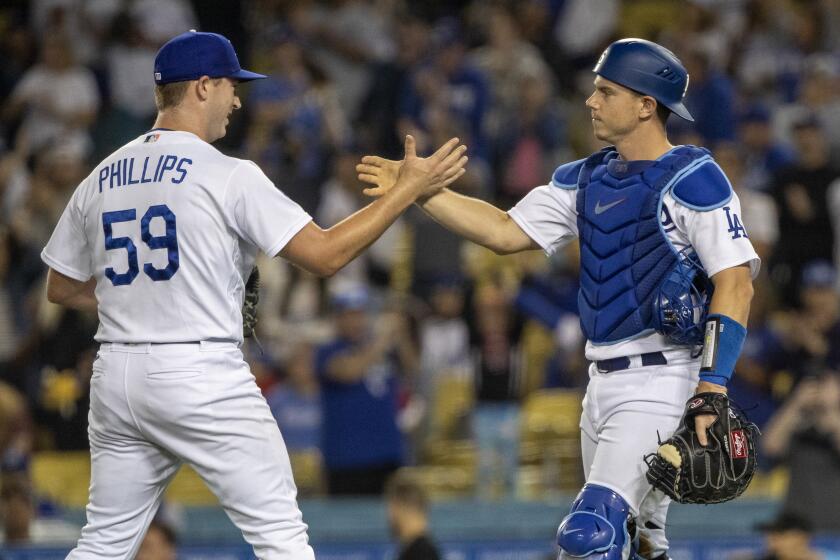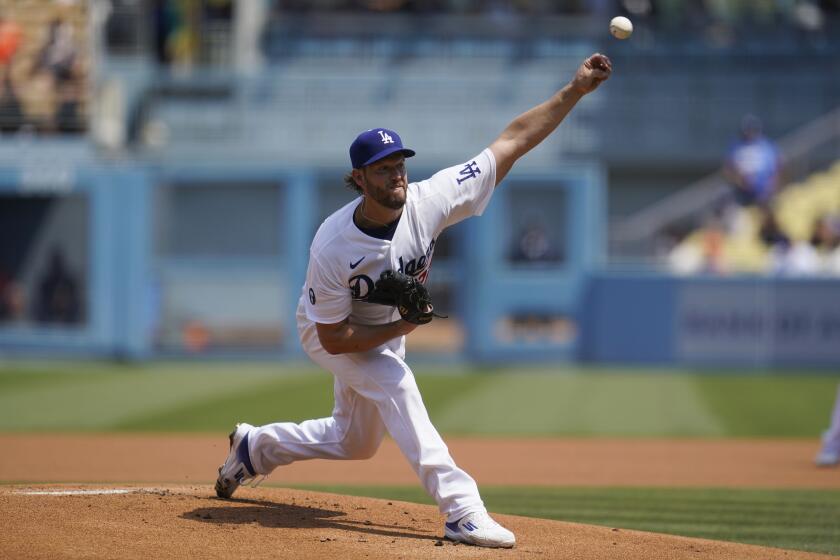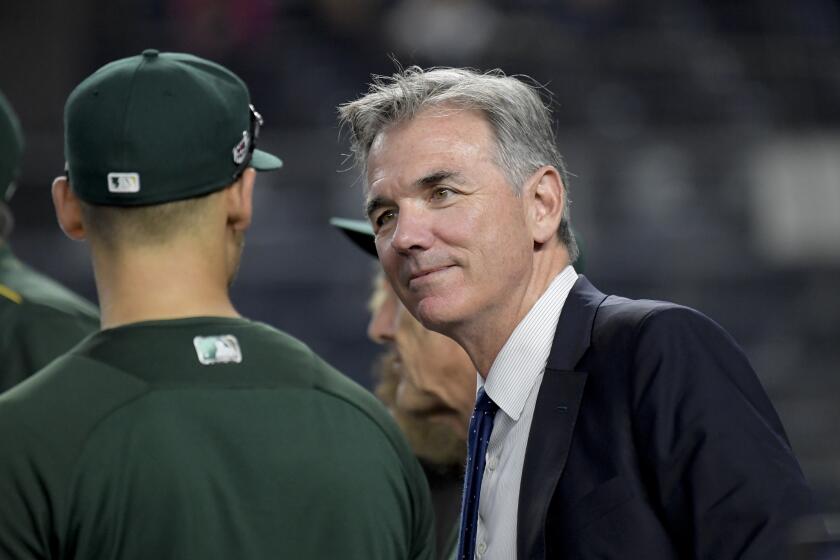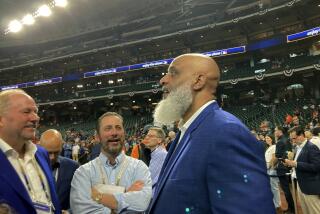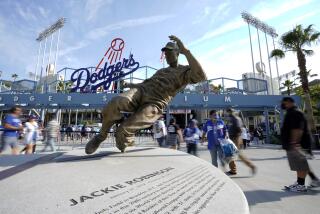Major League Baseball prepared to voluntarily recognize minor league union
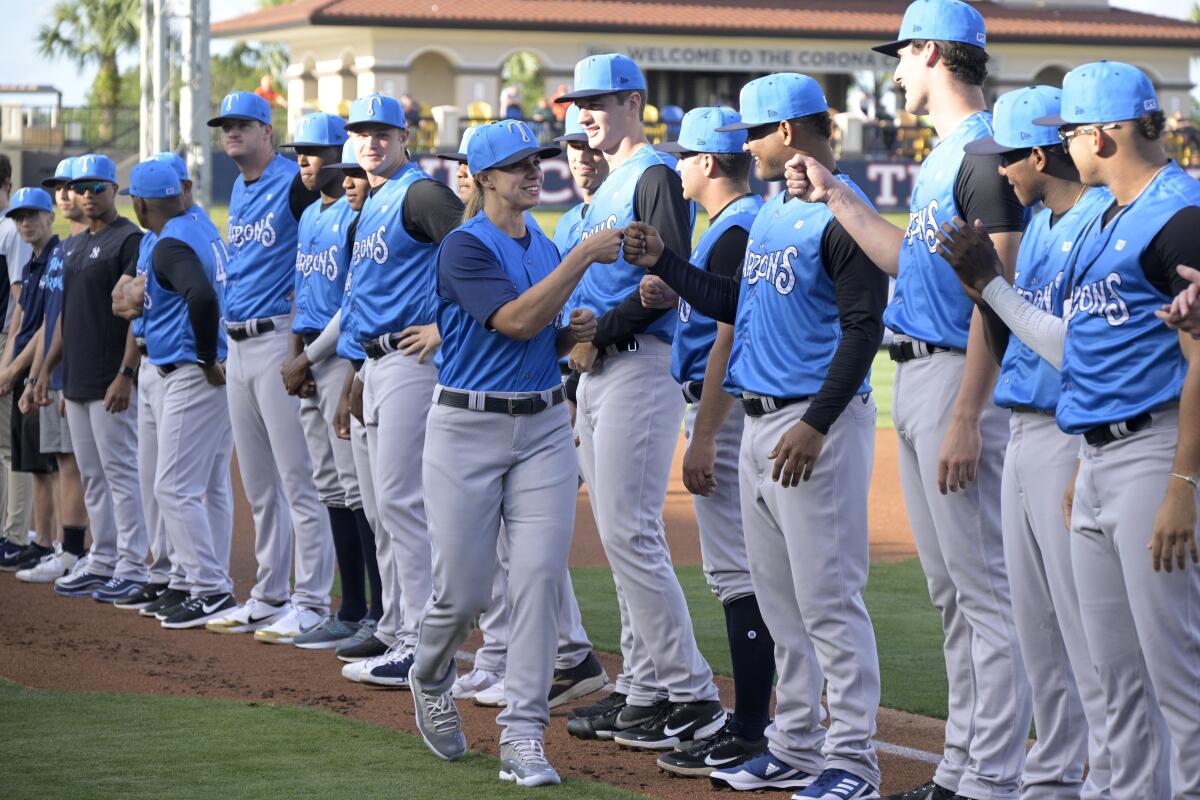
NEW YORK — Major League Baseball is ready to voluntarily accept the formation of a minor league union, a key step that will lead to collective bargaining and possibly a strike threat at the start of next season.
The Major League Baseball Players Assn. launched the unionization drive on Aug. 28 and told MLB on Tuesday it had obtained signed authorization cards from the approximately 5,000 to 6,500 players with minor league contracts. If MLB had declined to accept the union, the players association’s next step would have been to ask the National Labor Relations Board to conduct an authorization election.
“We, I believe, notified the MLBPA today that we’re prepared to execute an agreement on voluntary recognition. I think they’re working on the language as we speak,” MLB commissioner Rob Manfred said during a news conference to announce on-field rules changes for next season.
The Dodgers bullpen has became of the best in the majors even with a rash of injuries and inconsistency from closer Craig Kimbrel.
Major leaguers negotiated their first collective bargaining agreement in 1968. They have had nine work stoppages during a period of gains in which the big league average salary rose from $19,000 in 1967 to more than $4 million this year. Players on 40-man rosters on option to the minor leagues have been represented by the union since 1981.
The vast majority of minor leaguers have not been represented by the union, which intends to form a separate bargaining unit with its own dues and governance structure, such as player representatives and an executive board.
MLB raised weekly minimum salaries for minor leaguers last year to $400 at rookie and short-season levels, $500 at Class A, $600 at double A and $700 at triple A. For players on option, the minimum is $57,200 per season for a first big league contract and $114,100 for later big league contracts.
In addition, MLB this year began requiring teams to provide housing for most minor leaguers.
Dodgers manager Dave Roberts has plenty of options for the postseason rotation, even if they’re not all obvious. If it doesn’t work, he will be the one in line for criticism.
MLB and union negotiators have had an acrimonious relationship in recent years, leading to several grievances that remain pending. Manfred and union head Tony Clark held separate news conferences to announce the agreement that ended the lockout in March, and union officials did not attend MLB’s news conference Friday to announce the adoption of a pitch clock and defensive shift restrictions.
The five-year labor agreement expires Dec. 1, 2026, and MLB could seek a simultaneous expiration for a minor league deal.
The minor leaguers’ greatest leverage may be ahead of opening day, March 31 at triple A and April 6 at lower levels, when a strike could lead each team to keep its dozen or so unionized players on option at training complexes playing makeshift games.
Negotiations between Deputy Commissioner Dan Halem and Bruce Meyer, recently promoted to the union’s executive director, have been filled with acrimony.
Renowned general managers Billy Beane and Theo Epstein should be two names to look out for this offseason as potential new owners of the Angels.
More to Read
Go beyond the scoreboard
Get the latest on L.A.'s teams in the daily Sports Report newsletter.
You may occasionally receive promotional content from the Los Angeles Times.
